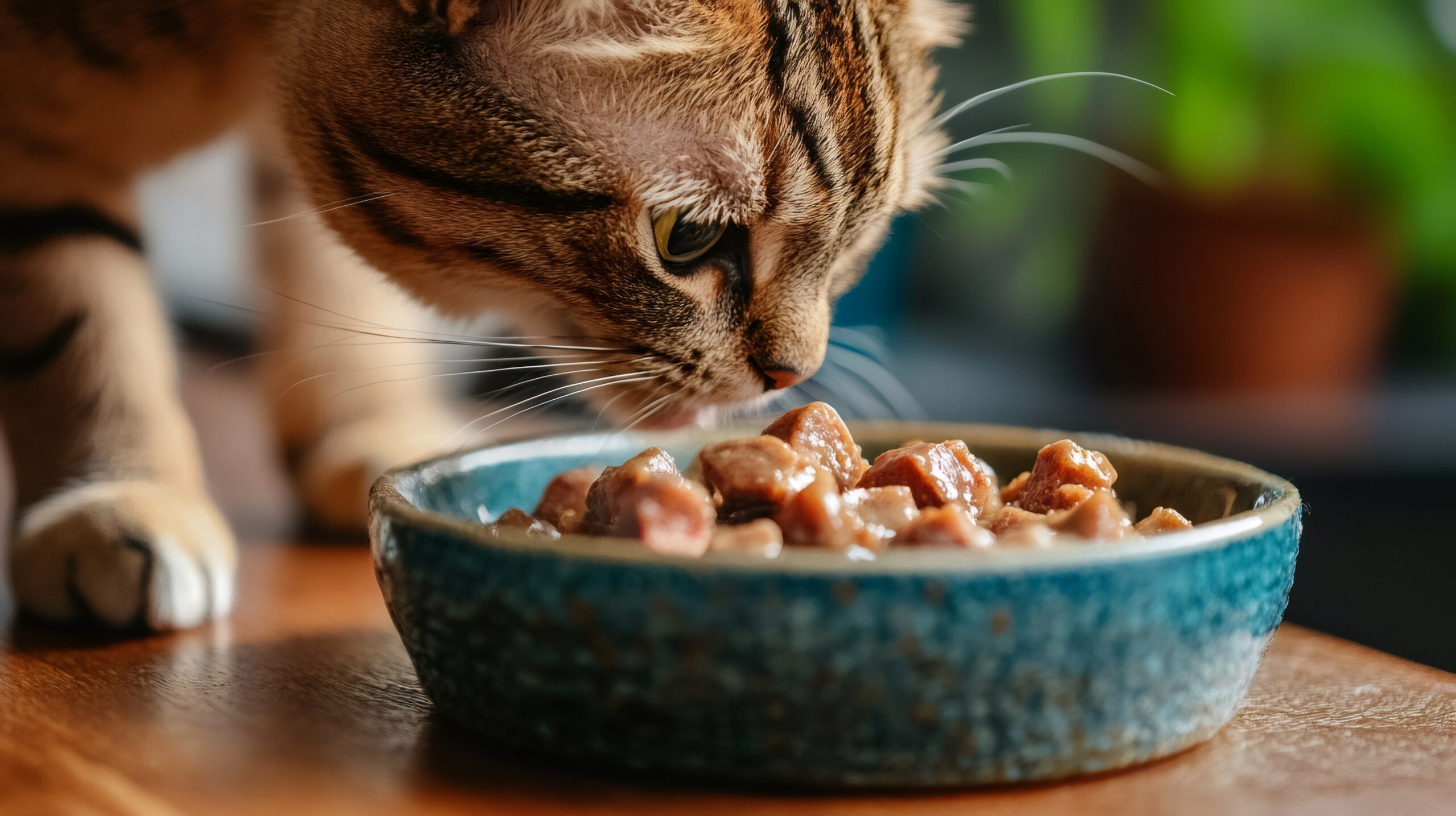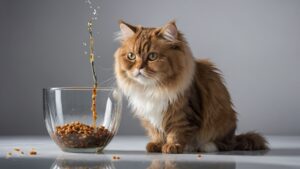
Pets holds foremost place in human hearts because of their amusing behavior along with their calming purrs. When looking for dietary improvements for your cat you might wonder about the safety of using olive oil in cat food. The pantry staple olive oil has become a topic of interest for pet lovers because of its potential health advantages.The blog explores all vital information regarding safely and responsibly incorporating olive oil into your cat’s dietary plan. This text explores olive oil’s safety for cats during feeding time while discussing both its advantages and potential dangers along with proper usage methods.
Is olive oil in cat food safe?
Short answer? The consumption of olive oil remains safe for cats as long as you limit their intake. Safety alone does not guarantee that something is essential for consumption. Olive oil serves no vital dietary role for cats but small quantities bring health advantages to their diet.
All cats show different responses when their diet undergoes modifications. Before giving olive oil to your cat you must learn about its benefits and get your veterinarian’s approval to verify its compatibility with your cat’s health condition.
Why Consider Using Olive Oil in Cat Food?
Olive oil in cat food contains healthy fats together with antioxidants and necessary vitamins. Pet care professionals who follow holistic methods recommend olive oil as a dietary addition which brings these potential benefits to cats:
- Promotes a Shiny Coat
Your cat’s skin will receive vital nourishment from olive oil’s monounsaturated fat acids thus resulting in a shiny healthy appearance to their coat. A tiny amount of olive oil might ease dryness and dandruff problems in your feline friend.
- Aids Digestion
Digestive problems with constipation occasionally affect cats. Olive oil contains small laxative effects which assist in regulating your cat’s digestive system. Olive oil at a teaspoon amount added to their food can provide relief from occasional constipation.
- Boosts Immunity
When your cat consumes olive oil getting vitamin E and polyphenols serves as antioxidants that both eliminate dangerous radicals and reduce body inflammation while boosting their immune strength.
- Helps Maintain Ideal Weight
Olive oil in cat food shows limited potential to reduce food consumption in cats who becomes chubby. However, moderation is key. The calories from olive oil accumulate rapidly even though this oil comes from a nutritious source.
- Supports Senior Cats
Senior cats typically develop mobility issues because of arthritis or joint pain as they grow older. Olive oil contains anti-inflammatory properties which offer joint pain relief to senior cats through its ability to reduce inflammation.
How to Introduce Olive Oil to Your Cat’s Diet Safely?
Here are the steps you need to follow to test the Mediterranean ingredient on your feline:
- Start Small
Start with small amounts of olive oil to observe how your cat reacts. Small cats should begin with a daily half teaspoon of olive oil in their food while large cats should start with one teaspoon.
- Monitor for Reactions
Check your cat for digestive distress including diarrhea or vomiting after the initial few doses of olive oil. Stop using olive oil right away and get veterinary advice if your cat shows negative responses.
- Opt for High-Quality Olive Oil
Select extra virgin olive oil because its production process remains simpler and it contains more beneficial nutrients than regular olive oil. The use of flavored or seasoned olive oil should be avoided because these versions can contain dangerous additives such as garlic or onion.
- Use Olive Oil Sparingly
Olive oil should only be given occasionally to cats rather than becoming a regular part of their daily meals. Your cat’s weight control depends on using olive oil in limited amounts.
FAQs About Olive Oil in Cat Food
Here are answers to some common questions pet owners have regarding olive oil in their cat’s diet:
- Can kittens eat olive oil?
Kittens need special diets because their digestive tracts remain delicate until they reach adulthood therefore they should avoid olive oil during this period.
- Can olive oil treat hairballs
Olive oil serves as a digestive tract lubricant that helps prevent hairballs in cats. Occasional administration of a small amount of olive oil helps hairballs move through the digestive system without issues.
- Does olive oil have a flavor that my cat would find appealing?
Preferences vary. Cats show different reactions to olive oil since some find its nutty taste appealing but others reject it completely. Small amounts of olive oil should be given to your cat to determine their reaction.
- Is olive oil suitable for cleaning ears?
Olive oil functions as a safe substance for softening excessive ear wax buildup. You must seek veterinary advice before using olive oil for any purpose other than dietary supplementation.

Risks Associated with Feeding Cats Olive Oil
The advantages of olive oil in human diets exist while it carries certain risks that need attention:
- Each tablespoon of olive oil contains 120 calories which might result in weight gain for cats. Overfeeding can lead to obesity.
- Some cats might experience gastrointestinal problems such as vomiting and diarrhea following olive oil consumption. Monitor your cat for signs of distress after the olive oil consumption.
- Some cats might develop allergic reactions when given olive oil even though this type of sensitivity is uncommon. The symptoms of allergic reactions to olive oil include skin itching and swelling.
Before using olive oil on your cat check for these conditions because it should be avoided or seek veterinary advice.
- Cats with pancreatitis
- Cats with a history of digestive issues
- Cats who are chubby require a strict low-fat diet should avoid consuming olive oil.

Comparison Table of Benefits and Risks
|
Benefits |
Risks |
|
Helps improve coat health |
Potential weight gain |
|
Supports digestive regularity |
Upset stomach |
|
Rich in antioxidants |
Allergic reactions (rare) |
|
Possibly aids joint health |
Not required in diets |
Wrapping it All Up
The addition of olive oil to cat food provides three main advantages which include digestive support and coat improvement and anti-inflammatory effects. The use of olive oil in cat food provides benefits but it requires careful introduction as a solution. Your pet’s health depends on both moderate amounts and high-quality olive oil to receive benefits without facing any potential dangers.
Regular check-ups with the veterinarian are needed to evaluate your cat’s dietary response because diet changes demand individual medical guidance. Olive oil presents itself as a secure dietary supplement for cats when used in small amounts to improve their nutritional intake naturally.
The blog contains additional information about feline nutrition. You can find expert recommendations with healthy recipes for your cat in our blog. Your feline companion will receive the ideal dietary plan through a collective effort.
Leave a Reply